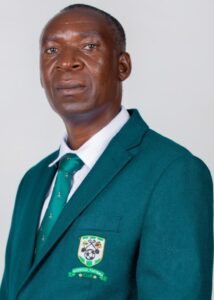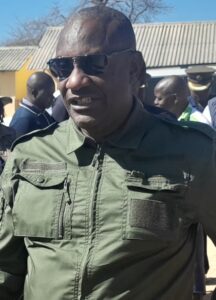By Flata Kavinga
Kwekwe-based human rights and environmental defender Emmanuel Nkosilathi Moyo has called on Zimbabwe to enact an Ecocide Bill, saying the law would protect the country’s natural resources from reckless destruction while ensuring sustainable development.
Moyo appeared before the Parliamentary Portfolio Committee on Environment recently in Mt Hampden, where he clarified details of a petition he submitted earlier this year urging legislators to criminalise ecocide.
“This is not a law against development. It is a law to protect Zimbabwe’s people, our natural wealth, and our sovereignty from reckless destruction,” Moyo told the committee.
He explained that ecocide refers to the gravest environmental crimes — unlawful or reckless acts that cause severe, widespread, or long-term harm to nature, such as cross-border pollution and the dumping of toxic waste.
Citing a 2021 definition proposed by an Independent Expert Panel of international lawyers, Moyo said the legislation would create deterrence, ensure justice for communities harmed by environmental destruction, and strengthen Zimbabwe’s sovereignty by holding irresponsible actors accountable.
“The Bill discourages unlawful or reckless acts, provides a pathway for justice, and ensures responsible companies are not disadvantaged by those who cut corners,” he said.
Moyo noted that momentum for ecocide laws is growing across Africa, with countries such as the Democratic Republic of Congo, Republic of Congo, and Burundi already backing moves to classify mass environmental destruction as an international crime.
He urged Zimbabwe to lead by example, becoming the first African Parliament to debate an Ecocide Bill.
“By recognising ecocide, Zimbabwe can affirm that its wealth will be used responsibly, set a standard for others in the region, and ensure that development benefits our people,” he said.
Moyo also argued that such legislation could boost investor confidence, promote innovation, and reduce the costs of environmental clean-ups.
The committee is expected to deliberate on Moyo’s submissions as part of ongoing parliamentary processes.





